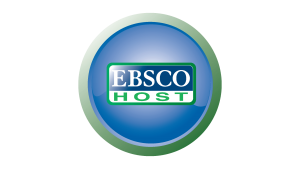Health Literacy of Nurses and Patients with Disabilities
DOI:
https://doi.org/10.37886/ip.2023.002Keywords:
disabilities, patient, nurse, health literacy, knowledgeAbstract
Research Question (RQ): How do the nurses master to work with patients with disabilities according to the knowledge they gain during formal and informal education?
Purpose: Special needs of people with disabilities are an essential part of life. Persons with disabilities face numerous obstacles, therefore the attitude towards them is of great importance. The awareness of the significance of health literacy gives healthcare workers an opportunity to support patients and their families to surmount obstacles in the areas of health and welfare. The purpose of the research was to establish the amount of knowledge on working with patients with disabilities gained by nurses during their formal education, to establish their need to acquire additional knowledge, to establish the impact of their personal experiences on their point of view and attitude towards patients with disabilities and to determine what kind of experiences they have with relatives of patients with disabilities.
Method: A qualitative research design was employed; data were collected with a survey. Data were collected with a structured questionnaire. For the interpretation of the data and the text written by respondents, a multi-phase approach of qualitative context text analysis was used. Context analysis of respondents’ answers yielded three main topics: (1) experiences on nursing patients with disabilities, (2) experiences with the relatives of patients with disabilities, and (3) the importance of knowledge on working with patients with disabilities. Collected data were coded and the interpretation of findings was made.
Results: Our results revealed that nurses require formal education in the area of disabilities in their undergraduate and postgraduate curricula. They gain knowledge for working with patients with disabilities during the working process and by attending additional training and education. Nurses have both personal and professional experiences in the area and describe their relations with patients with disabilities and their relatives positively.
Organization: The research was focused on the health literacy of nurses and patients with disabilities. The focus research primarily addresses the importance of health institutions and their workforce, which are required to ensure the safe and inclusive environment for vulnerable groups (in our case patients with disabilities).
Society: Nursing has a long and important history of adjusting to changes in the society and its health needs and responds to demands of the society. Nurses play an important role in health care, so the necessary changes need to start with them. Nurses have an impact at personal and individual level and at organizational level. They are the most important when it comes down to promotion of health literacy as they are the ones working closest to patients and have contacts with patients on daily bases.
Originality: The originality of the article can be seen in the study of a very current social issue, which affects the so far under-researched health literacy of nurses and patients with disabilities in Slovenia. The research is the first one of the kind in Slovenia.
Limitations / further research: First, the number of respondents was too low. Second, this was the first research of this kind in Slovenia, so there are no other Slovene research data to compare our results with. Third, the instrument was made for the purpose of the research as the foreign instrument was out-of-date and unsuitable. The research also gives an idea for further research in the area as it is an important part of work of nurses.
References
Altin, S. & Stock, S. (2015). Health Literate Healthcare Organizations and their Role in Future Healthcare. Journal of Nursing & Care, 4(2), 1-3.
Appelgren, M., Bahtsevani, C., Persson, K. & Borglin, G. (2018). Nurses' experiences of caring for patients with intellectual developmental disorders: a systematic review using a meta-ethnographic approach. BMC Nursing, 17(51), 1-19.
Aston, M., Breau, L. & MacLeod, E. (2014a). Diagnoses, labels and stereotypes: Supporting children with intellectual disabilities in the hospital. Journal of Intellectual Disabilities, 18(4), 291-304.
Aston, M., Breau, L. & MacLeod, E. (2014b). Understanding the importance of relationships: Perspective of children with intellectual disabilities, their parents, and nurses in Canada. Journal of Intellectual Disabilities, 18(3), 221-237.
Babnik, K., Štemberger Kolnik, T. & Bratuž, A. (2013). Zdravstvena pismenost: Stanje koncepta in nadaljnji razvoj z vključevanjem zdravstvene nege. Obzornik zdravstvene nege, 47(1), 62-73.
Beaucamp, A. & Sparkes, L. (2014). Health literacy and nursing. Australian Nursing and Midwifery Journal, 21(9), 49.
Bervar, A. (2017). Stališča strokovnih delavcev v vrtcu do otrok s posebnimi potrebami (Diplomska naloga). Univerza v Ljubljani, Pedagoška fakulteta, Ljubljana.
Boykins, A.D. (2014). Core Communication Competencies in Patient-Centered Care. The ABNF Journal, 25(2), 40-45.
Brach, C., Keller, D., Hernandez, L.M., Bauer, C., Parker, R., Dreyer, B., … Schillinger, D.J. (2012). Ten Attributes of Health Literate Health Care Organizations. Retrieved from
https://nam.edu/wp-content/uploads/2015/06/BPH_Ten_HLit_Attributes.pdf
Brach, C. (2017). The Journey to Become a Health Literate Organization: A Snapshot of Health System Improvement. Studies in health technology and informatics, 240, 203-237.
Brglez, M., Kaučič, B.M. & Limonšek, I. (2015). Ovire v komunikaciji pri obravnavi oseb z motnjo v duševnem razvoju. Revija za zdravstvene vede, 2(2), 46-60.
Brown, S. & Kalaitzidis, E. (2013). Barriers preventing high-quality nursing care of people with disabilities within acute care settings: a thematic literature review. Disability & Society, 28(7), 937-954.
Cafiero, M. (2013). Nurse Practitioners' Knowledge, Experience and Intention to Use Health Literacy Strategies in Clinical Practice. Journal of Health Communication, 18(1), 70-81.
Castell, E. & Stenfert Kroese, B. (2016). Midwives' experiences of caring for women with learning disabilities – A qualitative study. Midwifery, 36(2016), 35-42.
Clarke, D., Usick, R., Sanderson, A., Giles-Smith, L. & Baker, J. (2014). Emergency department staff attitudes towards mental health consumers: A literature review and thematic content analysis: Emergency attitudes towards mental illness. International Journal of Mental Health Nursing, 23(3), 273-284.
Cremonini, V., Pagnucci, N., Giacometti, F. & Rubbi, I. (2018). Health Care Professionals Attitudes Towards Mental Illness: Observational Study Performed at a Public Health Facility in Northern Italy. Archives of Psychiatric Nursing, 32(1), 24-30.
Crowe, A. & Averett, P. (2015). Attitudes of Mental Health Professionals toward Mental Illness: A Deeper Understanding. Journal of Mental Health Counseling, 37(1), 47-62.
Culp, A.G., Rojas-Guyler, L., Vidourek, R.A. & King, K.A. (2017). College Students’ Self-Efficacy, Knowledge, and Attitudes about Disability. American Journal of Health Studies, 32(1), 48-59.
Čremošnik, K. (2010). Pomen komunikacije s pacienti s posebnimi potrebami (Diplomska naloga). Univerza v Mariboru, Fakulteta za zdravstvene vede, Maribor.
Drake, G. (2016). Health literacy: The knowledge, experience, and education of advanced practice registered nurses in Arizona (Dissertation). University of Phoenix, Phoenix.
Eadie, C. (2014). Health Literacy: A Conceptual Review. Med-Surg Matters, 23(1), 1-13.
Ervin, D.A., Hennen, B., Merrick, J. & Morad, M. (2014). Healthcare for persons with intellectual and developmental disability in the community. Public Health, 15(2), 83.
Espinoza, K.M. & Heaton, L.J. (2016). Communicating with Patients with Special Health Care Needs. Special Care Dentistry. Dental Clinics of North America, 60(3), 693-705.
Geukes, C., Bröder, J. & Latteck, A.D. (2019). Health Literacy and People with Intellectual Disabilities: What We Know, What We Do Not Know, and What We Need: A Theoretical Discourse. International Journal of Environmental Research and Public Health, 16, 463.
Ghai, S., Sharma, N., Sharma, S. & Kaur, H. (2013). Shame & Stigma of Mental Illness. Delhi Psychiatry Journal, 16(2), 293-301.
Gosenca, K., Lipovec Čebron, U. & Zaviršek, D. (2016). Telo. In U. Lipovec Čebron (Ed). Kulturne kompetence in zdravstvena oskrba. Priročnik za razvijanje kulturnih kompetenc zdravstvenih delavcev (pp. 51-80). Ljubljana: Nacionalni inštitut za javno zdravje.
Hayran, O. & Özer, O. (2018). Organizational health literacy as a determinant of patient satisfaction. Public Health, 163, 20-26.
Höglund, B., Lindgren, P. & Larsson, M. (2013). Midwives' knowledge of, attitudes towards and experiences of caring for women with intellectual disability during pregnancy and childbirth: A cross-sectional study in Sweden. Midwifery, 29(8), 950-955.
Iacono, T., Bigby, C., Unsworth, C., Douglas, J. & Fitzpatrick, P. (2014). A systematic review of hospital experiences of people with intellectual disability. BMC Health Services Research, 14(1), 27-342.
Iftikhar, K., Alamgir, A., Maqbool, S., Rehan, W. & Akhtar, S. (2019). Knowledge and attitude of health care professionals towards persons with disability. Pakistan Armed Forces Medical Journal, 69(1), 147-153.
Ilkhani, M., 2013. The inpatient hospital care delivery to disabled children and young people and those with complex health needs (Doctoral thesis). University of Southampton, Faculty of Health Sciences, Southampton.
Jelenc, A., Keršič Svetel, M. & Lipovec Čebron, U. (2016). Kulturne kompetence in zdravstvena oskrba. In U. Lipovec Čebron (Ed). Kulturne kompetence in zdravstvena oskrba: priročnik za razvijanje kulturnih kompetenc zdravstvenih delavcev (pp. 11-28). Ljubljana: Nacionalni inštitut za javno zdravje.
Johnson, A. (2016). Health literacy: how nurses can make a difference. Australian Journal of Advanced Nursing, 33(2), 20-27.
Kennard, K.D. (2016). Health literacy concepts in nursing education. Nursing Education Perspective, 37(2), 118-119.
Khan, T.M., Umar, M., Naeem, A. & Marryam, M. (2016). Attitude of Medical Professionals Towards Persons with Disabilities. The Annals of Pakistan Institute of Medical Sciences, 12(1), 17-20.
Koh, H.K., Brach, C., Harris, L.M. & Parchman, M.L. (2013). A Proposed ‘Health Literate Care Model’ Would Constitute A Systems Approach To Improving Patients’ Engagement In Care. Health Affairs, 32(2), 357-367.
Krahn, G.L., Klein Walker, D. & Correa-De-Araujo, R. (2015). Persons With Disabilities as an Unrecognized Health Disparity Population. American Journal of Public Health, 105(2), 198-206.
Krasniqi, V. (2014). Disability in Post-War and Post-Independence Kosovo. SocialDialogue, Free magazine of The International Association of Schools od Social Work, 9(3), 25-28.
Kripalani, S., Wallston, K., Cavanaugh, K.L., Osborn, C.Y., Mulvaney, S., McDougald Scott, A. & Rothman, R.L. (2014). Measures to assess a health-literate organization. Vanderbilt Center for Effective Health Communication, 1-52.
Kunšič, M. (2016). Vloga medicinske sestre pri ohranjanju dostojanstva pacienta (Diplomska naloga). Fakulteta za zdravstvo Angele Boškin, Jesenice.
Lawless, J., Toronto, C.E. & Grammatica, G.L. (2016). Health literacy and information literacy: a concept comparison. Reference Services Review, 44(2), 144-162.
Lloyd, J.E., Song, H.J., Dennis, S.M., Dunbar, N., Harris, E. & Harris, M.F. (2018). A paucity of strategies for developing health literate organisations: A systematic review. PLoS ONE, 13(4), 1-17.
Macabasco-O'Connell, A. & Fry-Bowers, E.K. (2011). Knowledge and Perceptions of Health Literacy Among Nursing Professionals. Journal of Health Communication, 3(16), 295-307.
Mårtensson, G., Jacobsson, J.W. & Engström, M. (2014). Mental health nursing staff's attitudes towards mental illness: an analysis of related factors. Journal of psychiatric and mental health nursing, 21(9), 782-788.
McCauley, K., Elsom, S., Muir-Cochrane, E. & Lyneham, J. (2011). Midwives and assessment of perinatal mental health. Journal of Psychiatric and Mental Health Nursing, 18(9), 786-795.
Ministrstvo za delo, družino, socialne zadeve in enake možnosti Republike Slovenije (2014). Akcijski program za invalide 2014 – 2021. Retrieved from: https://www.zdis.si/files /akcijski_program_2014-2021.pdf
Mosley, C.M. & Taylor, B.J. (2017). Integration of Health Literacy Content Into Nursing Curriculum Utilizing the Health Literacy Expanded Model. Teaching and Learning in Nursing, 12(2), 109-116.
Mullan, J., Burns, P., Weston, K., McLennan, P., Rich, W., Crowther, S., Mansfield, K., Dixon, R., Moselen, E. & Osborne, R.H. (2017). Health Literacy amongst Health Professional University Students: A Study Using the Health Literacy Questionnaire. Education Sciences, 7(2), 1-11.
Noblett, J. & Henderson, C. (2015). Attitudes and stigma held by healthcare and mental health care professionals towards people with mental illness. Mental Health Today, 10(14), 24-27.
Novljan, E. (1997). Specialna pedagogika oseb z lažjo motnjo v duševnem razvoju. Ljubljana: Univerza v Ljubljani, Pedagoška fakulteta.
Parnell, T.A. (2014). Nursing Leadership Strategies, Health Literacy, and Patient Outcomes. Nurse Leader, 12(6), 49-52.
Pleasant, A., Rudd, R.E., O’Leary,C., Paasche-Orlow, M.K., Allen, M.P., Alvarado-Little, W., … Rosen, S. (2016). Considerations for a New Definition of Health Literacy. Retrieved from: http://nam.edu/wp-content/uploads/2016/04/Considerations-for-a-New-Definition-of-Health-Literacy.pdf
Rampre, M. (2016). Neverbalna komunikacija v zdravstveni negi (Diplomska naloga). Univerza v Mariboru, Fakulteta za zdravstvene vede, Maribor.
Rant, B. & Bregar, B. (2014). Razumevanje odnosa reševalcev do pacientov, ki so samomorilno ogroženi. Obzornik zdravstvene nege, 48(3), 177-194.
Rutar, D. (2018). Nova psihologija kulture hendikepa in drugo. In D. Rutar (Ed.), Egalitarne simbolizacije življenja s posebnimi potrebami (pp. 23-26). Kamnik: Cirius.
Scott, S.A. (2016). Health Literacy Education in Baccalaureate Nursing Programs in the United States. Nursing Education Perspectives, 37(3), 153-158.
Shakespeare, T. & Kleine, I. (2013). Educating Health Professionals about Disability: A Review of Interventions. Health and Social Care Education, 2(2), 20-37.
Sharkey, S., Lloyd, C., Tomlinson, R., Thomas, E., Martin, A., Logan, S. & Morris, C. (2014). Communicating with disabled children when inpatients: barriers and facilitators identified by parents and professionals in a qualitative study. Health Expectations, 19(3), 738-750.
The Constitution of the Republic of Slovenia. Official Gazette of the Republic of Slovenia, no. 33/91-I, 42/97, 66/2000 and 24/03. Retrieved from: https://www.varuh-rs.si/en/about-us/legal-framework/the-constitution-of-the-republic-of-slovenia/
The Patients' Rights Act (ZPacP). Official Gazette of the Republic of Slovenia no. 15/08. Retrieved from: http://dpnsee.org/wp-content/uploads/2019/04/Patients%E2%80%99-right-Act-eng-slo.pdf
Torres, R. & Nichols, J. (2014). Health literacy knowledge and experiences of associate degree nursing students: A pedagogical study. Teaching and Learning in Nursing, 9(2), 84-92.
United Nations. Convention on the Rights of Persons with Disabilities. (2006). Retrieved from: https://www.ohchr.org/en/instruments-mechanisms/instruments/convention-rights-persons-disabilities
Uysal, A., Albayrak, B., Koçulu, B., Kan, F. & Aydin, T. (2014). Attitudes of nursing students toward people with disabilities. Nurse Education Today, 34(5), 878-884.
Van der Kluit, M.J., Goossens, P.J.J., Leeuw, J. & de Rob, J.J. (2013). Attitude Disentangled: A Cross-Sectional Study into the Factors Underlying Attitudes of Nurses in Dutch Rehabilitation Centers toward Patients with Comorbid Mental Illness. Issues in Mental Health Nursing, 34(2), 124-132.
Vovk, A. (2020). Zdravstvena pismenost medicinskih sester in odnos do dela s pacienti z ovirami (Magistrsko delo). Fakulteta za zdravstvo Angele Boškin, Jesenice.
World Health Organization (1998). Health promotion glossary. Retrieved from:
http://www.who.int/healthpromotion/about/HPR%20Glossary%201998.pdf
World Health Organization (2014). Basic documents. Forty - eighth edition. Retrieved from: http://apps.who.int/gb/bd/PDF/bd48/basic-documents-48th-edition-en.pdf
Zamolo, B. (2014). Odnos in komunikacija med medicinsko sestro in pacientom. (Diplomska naloga). Univerza v Mariboru, Fakulteta za zdravstvene vede, Maribor.
Zaviršek, D. (2000). Hendikep kot kulturna travma. Historizacija podob, teles in vsakdanjih praks prizadetih ljudi. Ljubljana: Založba /*cf.
Zaviršek, D. (2014a). Time for recognition: people with disabilities today. Socialno delo, 53(3), 123-132.
Zaviršek, D. (2014b). Opredelitev hendikepa in razvoj študija hendikepa v socialnem delu. Mednarodna perspektiva. Socialno delo, 53(3), 133-146.
Zaviršek, D. (2018a). (Ne)plačano delo med prisilo in pravico, med prekarnostjo in samopotrditvijo. In D. Rutar (Ed.), Egalitarne simbolizacije življenja s posebnimi potrebami (pp. 141-169). Kamnik: Cirius.
Zaviršek, D. (2018b). Vpliv revščine, prekarnosti in zdravja na spretnosti odraslih: intersekcijska perspektiva. In P. Javrh (Ed.). Spretnosti odraslih (pp. 117-131). Ljubljana: Andragoški center Slovenije.
Zavod Republike Slovenije za šolstvo (2015). Kriteriji za opredelitev vrste in stopnje primanjkljajev, ovir oz. motenj otrok s posebnimi potrebami. Retrieved from:
http://www.zrss.si/pdf/Kriteriji-motenj-otrok-s-posebnimi-potrebami.pdf
Železnik, H. (2016). Komunikacija in pomen empatije v zdravstveni negi (Diplomska naloga). Univerza v Mariboru, Fakulteta za zdravstvene vede, Maribor.
Additional Files
Published
How to Cite
Issue
Section
License
Copyright (c) 2023 Andreja Vovk

This work is licensed under a Creative Commons Attribution-ShareAlike 4.0 International License.
![]()








